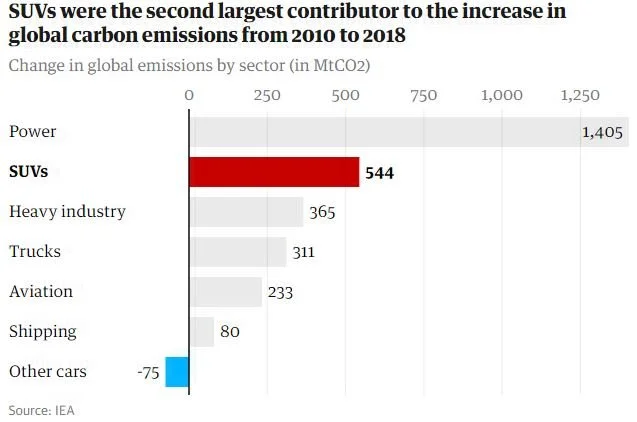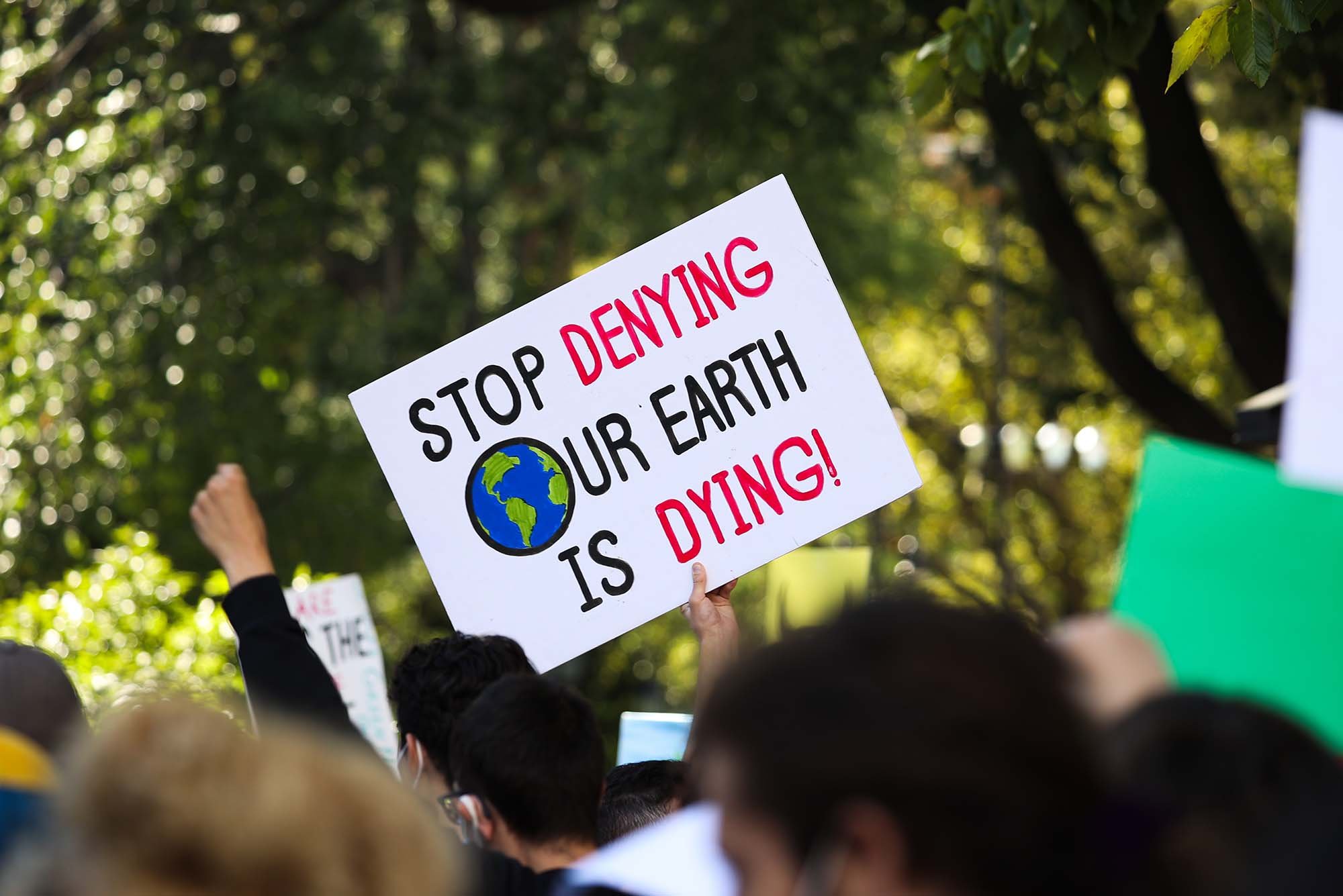
Car Manufacturers Locking In Climate Destruction By Rolling Back 2030 EV Deadlines
Over the last five to 10 years, almost every car manufacturer garnered great media coverage as they lauded their supposed ‘green’ endeavours to ‘go-electric’ by 2030 or 2035.
Rather than being led by altruism and a public acceptance of the role that they have played in causing climate destruction, these car manufacturers were responding to the increasing demand for electric cars, and the inescapable realities of the Climate Emergency.
However, while many media organisations just parroted lines from the manufacturers’ press releases, those that dug further saw immediately that many of the plans were for ‘electrification’ – meaning that they planned to sell cars entirely reliant on fossil fuels, by which offered hybrid drivetrains with tiny batteries. These vehicles – as they will knew – would make them the most profitability while continuing to worsen the Climate Crisis and public health.
Now, emboldened by the lack of media scrutiny, a lack of climate literacy, and a political climate that prioritises businesses over people, one-by-one car manufacturers are abandoning their 2030 pledges.
Profit over planet
In a matter of months, there has been a concerted effort by car manufacturers to roll back their plans for going electric.
While few of them had ever really committed properly – they had either spun off sub-brands that were EV-only, or had invested billions in dis/misinformation and lobbying against climate laws – more and more of them are back-tracking at an alarmingly fast rate.
Since the beginning of summer 2024, Volvo, Ford, Buick, Mercedes, Porsche and Toyota have all reversed their decision to act even slightly in line with climate science.
Alongside them, Renault and Kia are wavering – while BMW has only ever committed to 50% of its vehicles being electric by 2030.
Those that have already elected to repeal their decisions, their chief complaint is about profitability. Rich coming from a group of six manufacturers that reported a collective €113.8bn profit in 2023 (*Includes overall profits for GM, the owner of the Buick brand – the only brand that GM had committed to being all-electric by 2030, and which had previously pledged to go all-electric itself by 2035).
Yes, electric cars lock in current issues like the amount of land dedicated to parking. However, in terms of emissions, they are a vital form of action in the face of the Climate Emergency, and are one of the single biggest changes a person can make in their daily life. Credit: European Commission
It is unlikely that these six manufacturers will be the last to renege their commitments.
However, being collectively responsible for producing more than 16.9 million vehicles in 2023 alone, their decision to continue promoting fossil fuel vehicles has an enormous impact on planetary and public health – and further jeopardises our remaining carbon budget at a time when we should urgently and rapidly be cutting emissions.
The ’Causes’
Those manufacturers who have already rolled back on their pledges have used a number of excuses to justify their roll in continuing to worsen the Climate Emergency.
While profitability is a common ‘concern’ for their companies with astronomically high profit margins, the EU and US tariffs on Chinese batteries and other components is already taking its toll to make EV production more expensive.
Car manufacturers have been actively worsening and profiting from the Climate Crisis through their promotion of SUVs. Credit: The Guardian & IEA
Beyond profit, manufacturers have also blamed the availability of batteries. Let’s take their word for it, let’s say there is a major global battery shortage, then they caused it by pushing useless, pointless hybrids on us that consume batteries while offering little climate, public health or economic benefit for drivers.
Don’t forget that manufacturers have been repeatedly shown to lie about the emissions from hybrids.
The other chief claim from manufacturers is demand.
They say that there simply isn’t demand for pure EVs, and that they are only adapting to suit the markets, and that they will increase production when demand increases.
Ford has even gone as far as blaming its customers, with Marin Gjaja, Chief Operating Officer, telling Autocar: “I think customers have voted, and they told us [2030] was too ambitious is what I would say – and I think the industry has found that out the hard way’.
Ford only sells two BEV cars in Europe – both of them SUVs, with the cheapest model costing €42,120 after grants and subsidies.
Meanwhile, Volvo only sells four BEV models – all SUVs, with the cheapest retailing in Ireland for €45,655.
Like most car manufacturers they have created an artificial market where there are a tiny number of BEV options, almost all of them are exclusively a form of SUV, and they are all designed to be more high-end and luxury in nature.
In fact, they have prioritised SUVs across the board, offering a restricted range of non-SUV options across the board so that they can maximise profits and reduce the amount of tax they pay. This choice has also to SUVs being the second largest contributor to the increase in global CO2 emissions from 2010 to 2018.
Only the Chinese companies offer affordability – and they are now subject to import tariffs.
Demand for EVs has never been higher – its just that car manufacturers don’t want to lower their profits, so they won’t create the affordable EVs that people want.
Car buyers have no choices and it is clear that the market forces that so many governments have put their faith in – including the Irish Government – are failing to hold car manufacturers accountable for their climate and public health impact, or their profiteering from it.
These graphs show the rapid reduction in greenhouse gases necessary to keep within the 1.5C threshold. They show how far off course we already are, how emissions are likely to increase and how urgently we must act. Credit: IPCC AR6, UN IPCC
Climate Consequences
In the EU, passenger cars are one of the biggest polluters. They account for 61% of total CO2 emissions from road transport, according to European Parliament statistics.
Here in Ireland, the picture is even more stark; road transport accounts for almost 95% of all transport emissions, with transport being the second biggest source of greenhouse gases after agriculture.
While the Irish Government is still pushing ahead with its ‘one million EVs on the road by 2030’ strategy – a title that deliberately hides just how many hybrids are included in that plan – we are already so far off course due to mis/disinformation and cuts to EV grants by the government, that manufacturers conducting U-turns on their pledges could well be the nail in the coffin for staying below the vital 1.5C of warming target.
We have just over five years to rapidly reduce emissions to maintain a liveable planet, or face a rapid and destructive increase in crop failures, extreme weather events, and pandemics. This is an emergency and we are still living like we’re in a world that hasn’t existed for more than a century.
If we cannot hold politicians and brands accountable for placing profitability over a liveable planet for all, then we are all going to suffer greatly and lose the only habitable world that we have observed in the known universe.
What To Read Next
Irish Greenwashing Awards 2023
The second annual Irish Greenwashing Awards highlight the prevalence of greenwashing, award the worst offenders, and call for urgent anti-greenwashing legislation to protect the people of Ireland
Ireland Urgently Needs Anti-Greenwashing Legislation
It is imperative that the Irish Government follows the examples of France & the Netherlands to introduce legislation to protect Irish people from greenwashing






